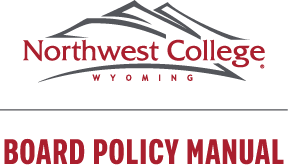To print please use PDF download.
I. Commitment to Teaching Excellence
Commitment to outstanding teaching is a distinguishing characteristic of the College. The College shall place primary importance on excellence in teaching and support for student learning. Because teaching is considered to be of preeminent importance, every faculty member shall strive for excellence in the classroom. This presupposes that the faculty member
- has a command of the subject,
- keeps abreast of new developments,
- carefully selects suitable teaching strategies that facilitate student learning,
- works to communicate effectively, and
- encourages questions and alternative points of view when relevant.
Moreover, the College acknowledges that teaching is both an art and a science, and individual faculty members may approach their classes in widely divergent ways and be excellent instructors.
II. Teaching Effectiveness
Teaching effectiveness is the cornerstone of faculty evaluation. Faculty members shall be evaluated on evidence of teaching effectiveness which must come from
- student course evaluations that show consistent teaching effectiveness or a pattern of improvement
- Division Chair or Director of Nursing evaluations
- self-evaluation, including a discussion of student course evaluations
- documentation of classroom activities
- documentation of out-of-class student-learning activities
- anything else the faculty member deems relevant, which may include peer evaluations
Faculty members shall foster an atmosphere of mutual respect, involve themselves in a continuous exploration of subject matter and ideas in order to maintain their professional vigor, to improve the quality of classroom instruction, and to be receptive to recommendations for improvement.
III. Assignment of Secondary Areas of Expertise
Occasionally, a ranked faculty member may be assigned to teach in a secondary area of specialty or to use a new means of instructional delivery. All such assignments must be in compliance with 3120 "Ranked Faculty", i.e., faculty members must have a minimum of a master’s degree in the discipline or 18 graduate hours in the subfield in which they teach. The exception to this qualification would be in the areas of occupational education and applied science as specified in 3120 "Ranked Faculty".
IV. Course Schedules and Teaching Load
The Course Scheduling Committee shall establish a four-semester schedule designed to accommodate student progress toward completion. Modification of the established schedule may be proposed to the Course Scheduling Committee (see Appendix N). The Course Scheduling Committee may recommend changes to the Vice President for Academic Affairs, who shall have final approval authority.
Standard teaching load shall be the equivalent of 30 credit hours per year (see Appendix M). Division Chairs and Director of Nursing in consultation with faculty members shall establish load and class assignments based on the established schedule for each semester. The Vice President for Academic Affairs shall adjudicate any disagreements.
Division Chairs and Academic Deans may recommend individual loads in excess of 15 credit hours per semester. The Vice President for Academic Affairs or designee shall approve or disapprove loads in excess of 15 credit hours.
V. Classroom Responsibilities
When a faculty member cannot meet a scheduled class, then the faculty member shall contact the Division Chair and the Academic Affairs Office. Nursing faculty shall contact the Director of Nursing and the Academic Affairs Office.
Faculty members shall submit student midterm grades for half or semester-long courses and final grades for all courses. These reports are due on the dates set by the College Registrar, who publishes the due dates in the annual College calendar. For midterm grades, faculty members may choose to turn in S/U or letter grades.
VI. Faculty Availability
- Academic Work Year
The academic work year begins with the fall faculty meetings just prior to fall semester and concludes at the end of the day following final examinations for spring semester.The College expects faculty members to be on campus to assume their faculty duties and responsibilities through the academic work year, except for the College’s scheduled vacation periods as stipulated by the academic calendar.
-
Hours on Campus
The College recognizes that faculty must on occasion be absent from campus pursuing justifiable personal and professional activities. Full-time faculty members should normally plan for their availability on campus each day of regular classes. Special consideration should be given to those faculty involved in Extended Campus service activities scheduled after the regular office hours of the College. - Office Hours
Each Each faculty member shall establish regular and adequate office hours so distributed throughout the week as to be of maximum convenience to the student. The College considers it important that each student have sufficient opportunity to consult with faculty members.Students and faculty members may need additional office hours during registration and examination periods. Faculty must bring established office hours and/or procedures for appointments to the attention of the students and provide copies of their teaching and office hour schedules to the Division Chair or Director of Nursing who shall submit copies to the Vice President for Academic Affairs.
VII. Assessment
The College expects faculty to participate in the determination of all-college, general education, and program level student learning outcomes, and to assess all-college, general education and program student learning outcomes as appropriate for assigned courses. The College also expects faculty to provide data resulting from assessment of student learning outcomes to the Vice President for Academic Affairs, when the Vice President for Academic Affairs and a majority of the Central Assessment Team requests it. Furthermore, the College expects faculty to participate in program and division review and interpretation of results of assessment of student learning procedures and outcomes. Outcomes assessment shall be used at the College to assess the effectiveness of academic programs and not the performance or teaching effectiveness of individual faculty.

